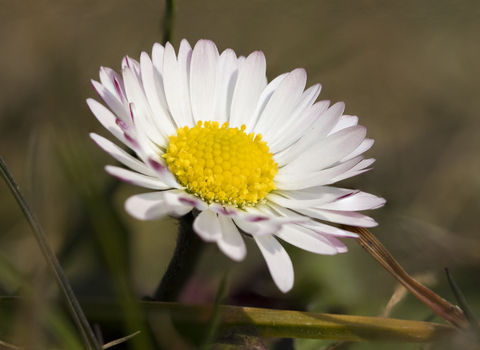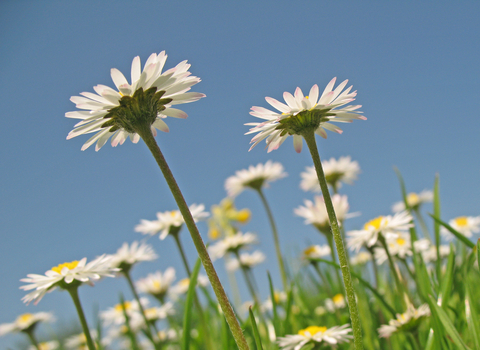
©Chris Lawrence

©Rachel Scopes
©Gemma de Gouveia
Common daisy
He loves me, he loves me not' is a familiar rhyme associated with what is probably our most well-known plant: the common daisy. Its white-and-yellow flower heads brighten up lawns, verges and short turf almost everywhere.
